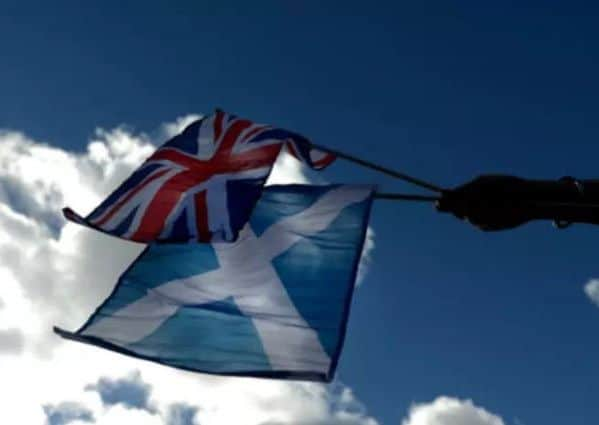Poll: Majority of Scots would still vote No in indyRef2
The latest Panelbase poll for The Sunday Times Scotland found the figures unchanged from their previous survey six months ago.
The poll found that 57% of voters would be likely to cast a No vote, compared to 43% for Yes.
Advertisement
Hide AdAdvertisement
Hide AdResearchers questioned 1,037 people in Scotland and found support for the SNP has fallen among voters, at both Holyrood and Westminster.


Asked about their Westminster voting intentions, 36% said they would vote SNP, down 5% from the previous poll in September 2017.
The Conservatives took second place on 28% (+1%), with Labour on 27% (+3%) and the Liberal Democrats and Greens unchanged on 6% and 2% respectively.
The survey predicts the SNP would remain the biggest party at Holyrood in the next election, with 40% of respondents planning to vote for the party, a 2% drop from the previous poll.


The Tories, Labour and Lib Dems remain unchanged on 28%, 22% and 6% while support for the Greens rose 1%, to 3%.
Regarding the timing of any further Scottish independence referendum, 58% do not want one in the next few years, 17% want one during Brexit negotiations and 25% when these are finished.
The number of people who expect Scotland to become independent in the next five to 10 years has dropped slightly, down 2% to 27%.
The number who do not expect independence at any point in the next few decades has also dropped 2% to 30%.
Advertisement
Hide AdAdvertisement
Hide AdA total of 19% (-1%) envisage it happening in 10 or 15 years, while 11% (+1%) expect it to take 20 or 30 years.
Election expert professor Sir John Curtice told the newspaper: “Support remains high enough for the independence flame still to be burning, but not strongly enough for the SNP to contemplate another ballot any time soon.”
He added: “Labour will be cheered by the three point increase in Westminster support since your last poll, but the 27% share is little different from other recent polls, and is simply in line with its 2017 vote. There is no sign of any [Richard] Leonard bounce.”
He said if Nicola Sturgeon “looks to be cornered by the independence debate, Ruth Davidson is in an equally difficult position over Brexit.”